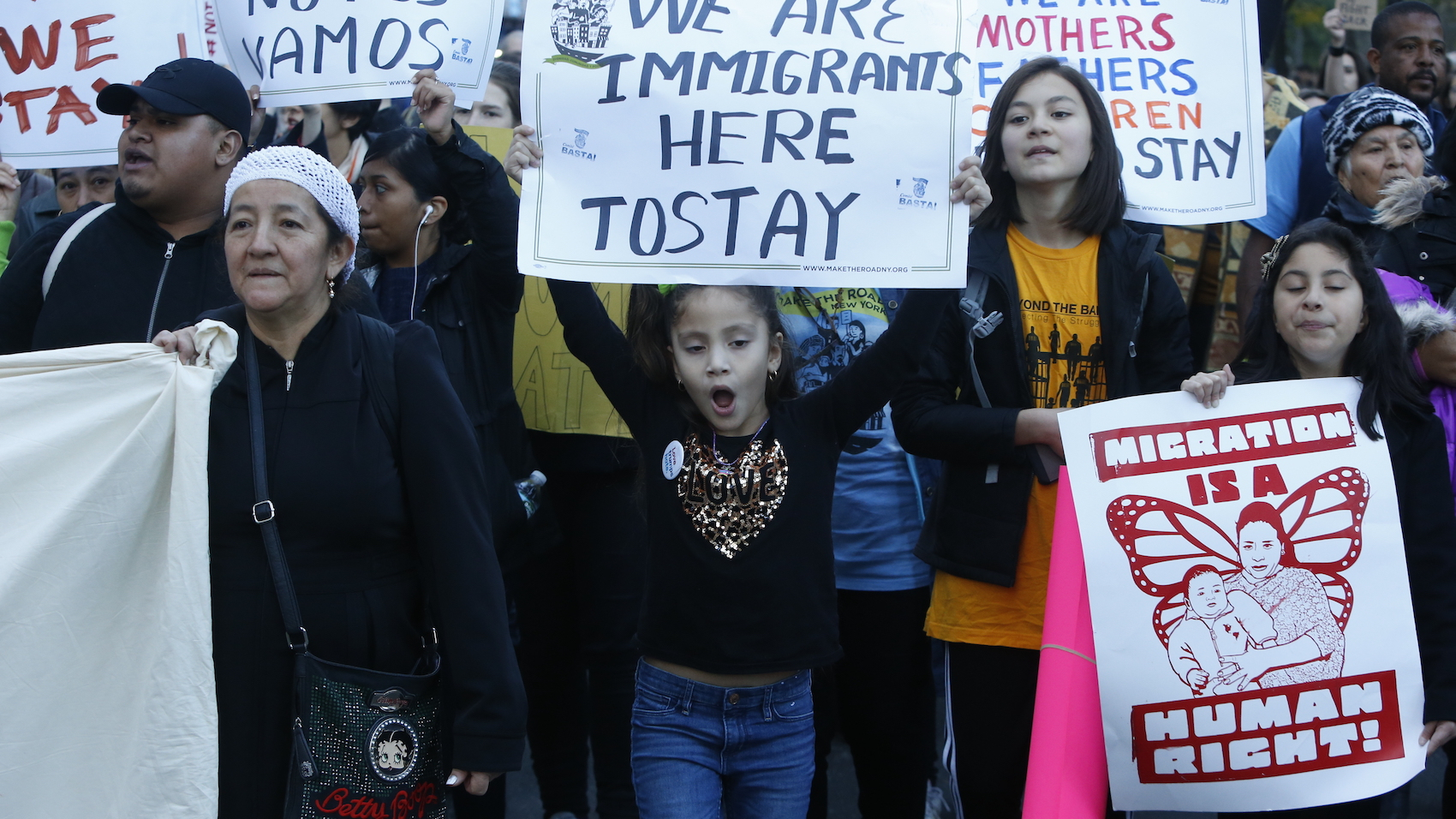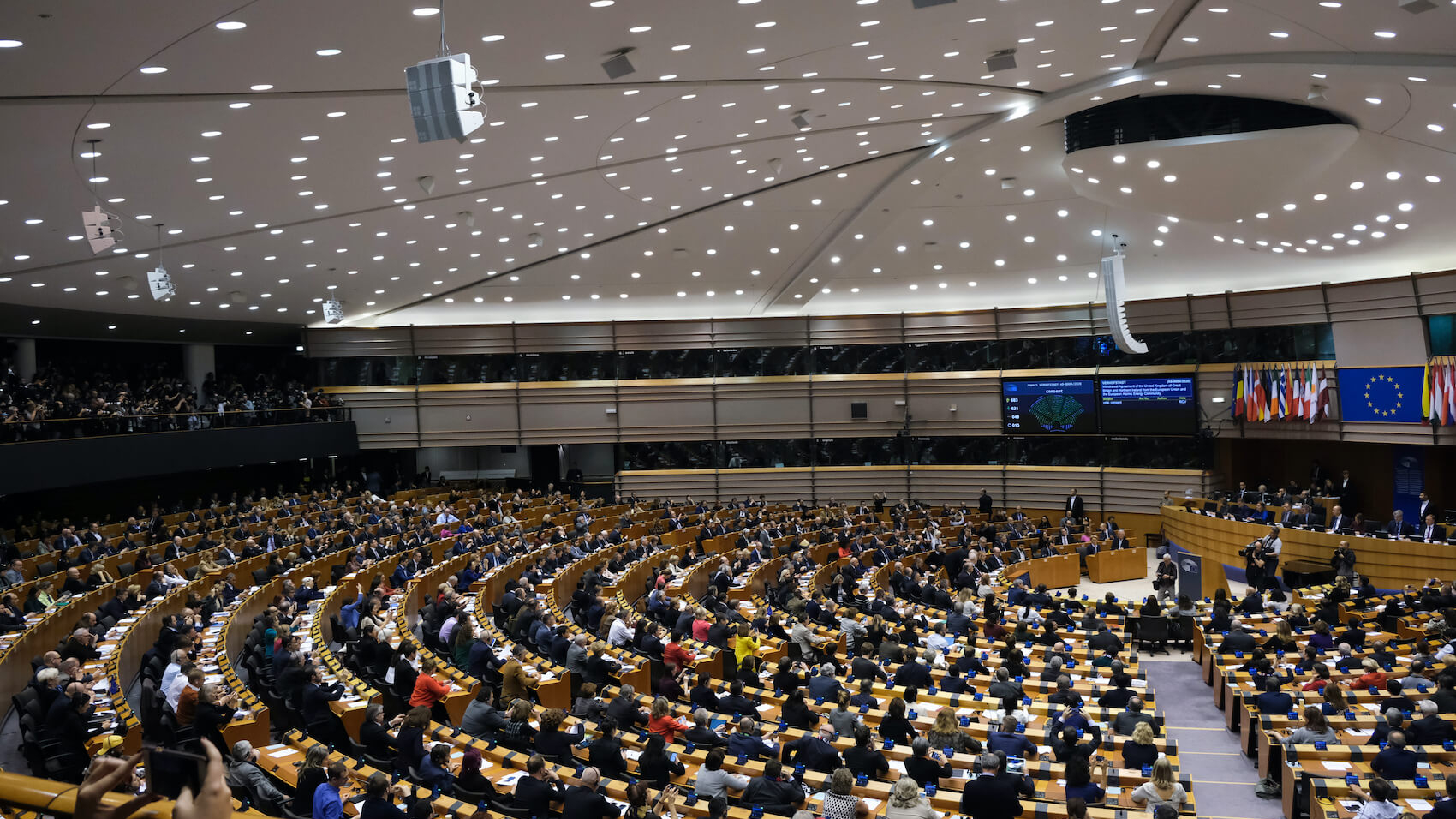This article is an attempt to critically assess the utilization of internet platforms by right-wing populists. Analysing both primary and secondary sources, the author identifies several propaganda methods used by populists in digital venues to trigger insecurities in their target audience. Nativism and xenophobia are at the forefront of these propaganda methods. The increasing use of internet algorithms and artificial intelligence is also brought to the readers’ attention as abetting the spread of fake news and hate speech. The author concludes by drawing attention to initiatives and mechanisms that social media platforms should use to limit the damaging effects of such digital populist rhetoric.
By Sena Eksi
“Populism often asks the right questions but provides the wrong answer” (Mudde and Kaltwasser, 2017: 118).
Populism is defined as a stark social and political divide between the common people and the corrupt elite. The author of The Global Rise of Populism, Benjamin Moffit writes that populist leaders aim to represent the unified “will of people,” hence arguing that populism “is generally misused especially in a European context” (Moffitt, 2016: 101-102). Accordingly, populism is embraced both by left-wing and right-wing political parties, as well as other extremist groups along the political spectrum. Even though populist leaders seem—at least superficially—to have the well-being of their citizens at heart, with time, idiosyncratic politicians tend to corrupt the popular spirit and seek to realize their own goals by labelling themselves as the natural or sole representative of the true people.
Propaganda methods and mass media have always been used to spread new ideas, thoughts, and doctrines. A well-known example is the Nazi regime in Germany, which used propaganda through different sources of media to influence the German population. Today, digital media works as a modernized platform to disseminate all kinds of extremist propaganda nationally and internationally. This article will examine primarily the historical background of populism and the rise of far-right movements, as it is necessary to trace the origin of radicalized currents on today’s digital media. According to Anton Jäger, US populism scholar, “in its original form, populism was not racist; it was truly for and by the people” (Maly, 2018: 5). As evident by contemporary populist parties, this is no longer the case, as racist policies tend to dominate. Therefore, the primary focus of this article will examine how today’s populist voices use digital media—especially social media—as tools to spread racist messages globally.
We begin with the definition of populism. Jan-Werner Müller clarifies that: “[Populism is] a particular moralistic imagination of politics, a way of perceiving the political world that sets a morally pure and fully unified—but ultimately fictional—people against elites who are deemed corrupt or in some other way morally inferior. […] Populists claim that they, and only they, represent the people” (2016: 19–20). In this view, populist leaders offer an idealized vision to the voting public with a claim that they represent the only true “voice of the people.”
Presenting themselves as political saviours by satisfying the needs of the population, populist leaders expand their sway among a greater share of the electorate to boost their political power. Populist politicians often use strong emotional appeals, including public discontent, to stir support (Hafner-Burton et al., 2017). Precisely because right-wing politicians trigger the public’s insecurities, highlighting the lack of national and personal security (mass immigration, for example), they steadily cultivate citizen appeal. As Ico Maly emphasizes: “Populism is nowadays being used [as] a synonym for demagogues, racism, authoritarianism and nationalism. The concept has therefore become a euphemism for far more radical ideological positions” (2018:6).
The article Right-Wing Extremists’ Persistent Online Presence: History and Contemporary Trends emphasizes a notable classification, when it comes to the right-wing actors: “we conceptualize Western right-wing extremism (RWE) as a racially, ethnically, and/or sexually defined nationalism, which is typically framed in terms of white power and/or white identity (i.e., the in-group) that is grounded in xenophobic and exclusionary understandings of the perceived threats posed by some combination of non-whites, Jews, Muslims, immigrants, refugees, members of the LGBTQI+ community, and feminists (i.e., the out-group(s))” (Conway, 2019). It is common for populist politicians to make use of nationalistic notions to create a picture of the in-group, an image that will be radically developed and internalized by right-wing extremist groups. Subsequently, they must exclude individuals who don’t meet the in-group’s criteria.
The reasons for the increase in (far-right) populism and the radicalization of the political firmament in many democracies across the world is due to a complex set of factors. Undoubtedly, however, the central cause, on a global level, has been the intersection of a crisis of democracy (Fitzi, 2019) and a more fundamental crisis of governance (Yuval-Davis, 2012). Overall, the “depletion of the welfare state, the deregulation of the markets and the deconstruction of political culture” (Fitzi, 2019: 7) have proved fertile ground for the expansion of populism. Even if populism was first notable in the Americas, these factors have also caused an increase in European populism.
Since the end of the 1990s, a rolling set of global crises, including terrorism, climate change, financial crises, and now, the COVID-19 pandemic, have undermined citizen trust in “territorial governmentality and juridical control of nation-state bounded governance,” and heightened the sense of a world spinning out of control (Vieten, 2020: 4). Populists can readily step into the breach in such a context, with promises of a return to a golden past and a restoration of “law and order.” A notable example of such an approach is Donald Trump’s declaration to the United States on winning the 2016 election: “I have a message for all of you: the crime and violence that today afflicts our nation will soon […] come to an end. Beginning on January 20, 2017, safety will be restored” (Taylor, 2016).
Given that populist appeals manifest across the political spectrum, it is worth asking how populism has dovetailed in Europe with the return of the extreme right. For Inglehart and Norris (2016), populist tendencies in Europe increased due to cultural factors, such as the spread of multiculturalism and cosmopolitanism. With globalization, mobility increased, motivating people to freely choose and even abandon their national identities in favour of the “global supermarket” and of cosmopolitan identities (Flew & Iosifidis, 2019: 9). Thus, right-wing populists and their voters fear that their distinctive national cultures or identities may be destroyed. These cultural concerns expand and spread widely into society via the extensive use of social media. According to Iosifidis, globalization plays an important role in the rise of far-right movements. The new-social media spreads both the cosmopolitan and nationalistic views (ibid).
The more globalization was emphasized the more the nationalist borders and boundaries were materialized in social media discussions. Economic nationalism was one response in a globalizing yet increasingly unequal economic world. Inglehart and Norris, as well as others such as Judis (2016), have constructed populism as an economic reaction against rising inequalities. But beyond the economy, the ideologies broadcasted on social media created unconfirmed biases on many grounds, especially since the users of social media became the mass consumers of ideology. These included far-right arguments propagating the rationales for exclusivist policies.
One of the main characteristics of far-right actors is their tendency to advocate for “exclusionist populism” and “their ethno-nationalist notion of citizenship, reflected in the slogan ‘own people first” (Betz, 1994; Rydgren, 2005, as cited in Muis; Immerzeel, 2017: 2). Limiting migration, introducing nativist policies (favouring one’s own language, traditions, and culture) are just a few strategies advanced by far-right politics. This exclusivity can be seen in the nativist claim that “states should be inhabited exclusively by members of the native group (the nation) and that non-native elements (persons and ideas) threaten homogeneous nation-states” (Mudde, 2007; Muis & Immerzeel, 2017, as cited in Muis; Immerzeel, 2017: 2). In most of cases, nationalist convictions are followed by racism and an ethnocentric and xenophobic vision leading to anti-immigration propaganda. Right-wing groups often prefer strong leaders, who reflect “the will of the people” by “stressing themes like law and order and traditional values” (Inglehart & Norris, 2016, as cited in Muis & Immerzeel, 2017: 2-3).
Summarizing, global frustrations with political establishments, concerns about immigration, economic insecurities, growing inequality in wealth distribution, and the dilution of “national identity, have brought about a broader concern that globalization is associated with a shift of power to transnational elites” (Flew & Iosifidis, 2019: 2). This explains why voters, especially European ones, are now attracted to populist leaders who promise security, an ethno-centric identity, and democracy. The fact that nine far-right parties have formed a new bloc in the European Parliament, called Identity and Democracy (ID), highlights this aspect (BBC News, 2019).
Digital media has played a significant role in the rise of populism, often facilitating the circulation of far-right propaganda. Accordingly, I’ll next focus on the background of far-right extremism in media. A special consideration will be given to how far-right actors have mobilized across various platforms, particularly in Europe.

Populism in the Digital Age: Social Media as a New Far-right Platform
Before populist politicians speak in the name of the people, they must build a large audience. According to Professor of Government Kurt Weyland, it is firstly important to attract the citizens’ attention. For many citizens, their first impression of a populist movement is formed by the personalistic leaders. By managing politics in opportunistic ways, rather than following a strict program, populist leaders attract followers (Weyland, 2021). Secondly, the media contributes to the construction or destruction and distribution of the populist voice (Maly, 2018: 9).
To understand populism in the digital age, it is necessary to take the socio-technical assemblage, consisting of human and non-human players, into account (Maly, 2018: 17). Non-human players can be defined as the algorithmic functions of digital media. Maly, a professor of politics, goes one step further by subcategorizing these functions as “algorithmic activism.” He highlights the importance of this type of activism, most widely used by politicians: “this type of activism contributes to spreading the message of a politician or movement by interacting with the post to trigger the algorithms of the medium so that it boosts the popularity rankings of this message and its messenger” (Maly, 2018: 10). This algorithmic activism accomplishes a crucial function for a populist, who effectively spreads his or her message with the help of social media. Indeed, contemporary populism boosted by social media algorithms exploit both the public sphere and disrupts individual realities (Maly, 2018). An example of how such contemporary populism measures impact individual realities in the spread of hate-speech online; individuals who would usually not express hate speech in public feel like they have a comfortable and normalised online platform to do so.
International Security professor Maura Conway considers the beginning of far-right extremism on digital media to be the mid-1990s when the World Wide Web developed. This introduced the first cases of internet-afforded hate, initiated and promoted by humans (Conway, 2019: 4). Since then, existing far-right movements have replaced offline based ego-centric, xenophobic, nationalistic, and racist propaganda by voicing them online. Therefore, “the development of information and communication technologies” as well as the alleviation of European borders are considered the “new enablers” permitting far-right groups to “connect and cooperate” (Whine, 2012: 317).
However, populism scholars are not only concerned about online hate speech but also about disinformation and radicalization. The US and other countries have undergone a series of attacks that can be connected to online disinformation and radicalization. Conway lists different incidents, including the terrorist attack on March 15, 2019, in Christchurch New Zealand, which she cites as the pioneer of such “mainstreaming” of disinformation and online radicalization. She emphasizes that the mosque attack, in which 51 people died, was peculiarly internet-centric, as it involved the distribution of a pre-planned online manifesto and a Facebook Live video stream. Other examples include the Poway synagogue attack on April 2019, the El Paso Walmart shooting in August 2019, the Halle shootings in October 2019, and a series of similar attacks, which only heightened attention on right-wing and their use of the internet to mobilize and radicalize (Conway, 2019: 12-13).
Accordingly, as research shows, many organized hate groups have also developed websites and forums. Some of these, such as those established by various Ku Klux Klan (KKK) branches, function as quasi “news” sites for a more general audience, while others offer more group-specific information (history, mission, events, etc.) (Conway, 2019: 4). Importantly, forums have also “acted as an essential medium for RWEs to air their grievances, bond, and form a collective identity by othering their ‘common enemies’” (Conway, 2019: 4-5).
In addition to playing a key role in facilitating the spread of hate speech, social media is also connected to the rapid circulation of “Fake News” (Wardle, 2017). When talking about “Fake News,” it is necessary to refer to Hannah Arendt, who emphasized in 1953 that the individual could become subject of the totalitarian state and be unable to distinguish between fact and fiction. The flattening of online news, between more traditional sites, social media, and “news” from RWE sites, has made it difficult for social media users to differentiate between fact and fiction, and has helped RWE spread hate and nationalism, galvanize supporters, and attract new ones.
Twitter is considered a vanguard platform when it comes to polarizing fake news and hate speech in political discourses. Particularly, the German far-right party Alternative für Deutschland (AfD) is known for its digital activism using the “hashjacking” strategy. Twitter “hashtags” were designed to create a “virtual community of interested listeners” when directing users to a particular topic. They also facilitate communication and engage debates surrounding specific hashtags. Although this can contribute to open and democratic discussion about a range of topics, extremists have exploited the hashtag to infiltrate their views into moderate discussions (Berger, 2016; Graham, 2015, as cited in Ahmed; Pisoiu, 2020). “Hashjacking,” hijacking a hashtag, uses someone else’s hashtag to promote one’s own social media activity (Darius & Stephany, 2019). Research by the Alexander von Humboldt Institute for Internet and Society showed that the Far-right AfD supporters hijacked rising hashtags in 2020, including #FlattenTheCurve or #CoronaVirusDE (Fox, 2020). Most of the right-wing politicians use both their own party hashtags as well as the hashjacking method to strategically target opponent campaigns and to effectively polarize political discourse. As a result of their digital political communication strategy, they succeed not only online but also in elections (Darius & Stephany, 2019).
When it comes to data about the identified numbers of right-wing extremist accounts, the Twitter application programming interface (API) counts around 175 EU-wide profiles, mainly centred on neo-Nazi and white supremacist topics (Ahmed & Pisoiu, 2020). The field of interest of European-based accounts is centred on topics like antisemitism (holocaust denial, “Jewish world conspiracy,” etc.); defending European culture, identity, and race; and “white genocide.” In the European context, the high rate of activity of Spanish far-right populist accounts stands out, while the electoral success in 2019 of the Spanish far-right party Vox is a testament to their efforts (ibid). The increasing number of refugees and immigrants has contributed even more to digital polarization.
The rise of right-wing populist parties and activists is very concerning, as they not only induce radical activities but also contribute to the formation of narcissistic populations and introverted communities. By creating a self-centred in-group, out-group members are expected to be excluded socially, as well as politically. Moreover, besides the increasing number of asylum seekers, migrants, and “classical” refugees (those who fear persecution for reasons of race, religion, nationality, political opinion, or membership in a particular social group), it is predicted that within the next decades, most countries will also have to face different classes of refugees, specifically “climate refugees” (Tetsuji, 2021). Although immigration is common in every modern society, it is also often followed by xenophobic tendencies. With the arrival of social media 2.0 (simplified technology to allow its users to create, share, collaborate and communicate easily) and the uncontrolled spread of fake news, the formation of xenophobic communities and anti-immigration policies became unavoidable and inevitable.
To limit the damaging effects of digital media, Wu (2016) suggests using Facebook, among others, as a “public benefit corporation.” To put it in another way, online platforms would aim to support their users’ activity to advantage for the online community and avoid harmful activities. Meanwhile Napoli and Caplan (2017) favour modified frameworks that reflect “the hybrid nature of social media platforms—content producers, but also investors in platforms’ to create connectivity, called ‘information utilities’” (Flew & Iosifidis, 2019: 24). By relying on the users’ sense of social responsibility, social media platforms would create an information exchange space, as a common good for the internet community. However, these proposals are utopic visions, as they rely on the idealized version of internet users, who aim to use digital media only for the well-being of global internet users.
An initiative taken by the European Commission along with Twitter, Facebook, YouTube, and Microsoft produced relevant outcomes: introducing a “Code of Conduct on Countering Illegal Hate Speech Online” (May 31, 2016) and developing “a series of Europe-wide commitments to combat the spread of ‘illegal hate speech’ via the internet” (Conway, 2019: 16-17).
Furthermore, Twitter’s reaction to violence and hateful conduct achieved meaningful results including the removal from the platform of far-right political group accounts including the American Nazi Party, the League of the South, and Britain First (Kuchler, 2017). However, even though accounts from the far-right group Britain First, such as Paul Golding and Jayda Fransen, were suspended, it didn’t take long until they reopened new accounts. Many white nationalist groups also tend to create fake accounts. Recent examples are fake profiles linked to Identity Evropa, an identarian movement which anonymously pushed violent rhetoric related to ongoing protests in multiple states across the US (Collins, Zadrozny & Saliba, 2020). The fact that Twitter does not investigate users’ real identity to protect its users’ privacy, consequently, limits the monitoring of far-right activism and therefore is still in need of improvement.
The exposure to a diversity of ideologies on social media platforms, such as Twitter and Facebook, can open opportunities for dialogue. Even though the rise of right-wing populists cannot be prevented, digital media efforts, such as the project of the European Commission, can create significant barriers for right-wing activists on digital media. The rise of online far-right activism has been experienced across the world, and it is the responsibility of digital platforms to prevent such activities from taking place, ensuring all their consumers a safe experience.
Conclusion
This article confirms that populist far-right parties and movements can mobilize and organize on social media. Populism in its original form was meant to be “from the people and for the people.” Since right-wing populist leaders have become more influential, the term “populism” is now laden with negative connotations.
While globalization is meant to create a more international and multicultural reality, far-right extremists are feeling threatened and use xenophobic propaganda to urge ethno-centric radicalization. Far-right digital media users, especially neo-Nazi and antisemitic groups, use digital media and algorithms to widen their sphere of influence while spreading (internet) hate. Their motives are the defence of in-group culture, identity, and race; “white genocide” is cited as one of their main motivations.
Ultimately, the digital medium has contributed to the global spread of disinformation, hate-speech, propaganda, and radicalization, and it is increasingly difficult for digital platforms to monitor fringe extremist websites and activity. Due to the immensity of the World Wide Web, it will only grow more difficult to track and avoid radical activities, which multiply daily. It shall be, thus, the responsibility of both the citizen to critically evaluate digital data and of the digital platform owners to safeguard their platforms from online extremism.
References
— (2019). “Europe and right-wing nationalism: A country-by-country guide.” BBC News. November 13, 2019. Europe and right-wing nationalism: A country-by-country guide – BBC News (accessed on August 24, 2021).
Ahmed, Reem & Pisoiu, Daniela. (2020). “How Extreme Is The European Far-Right: A Twitter Analysis”. VOX-Pol. https://www.voxpol.eu/how-extreme-is-the-european-far-right-the-quantitative-analysis/ (accessed on August 27, 2021).
Arendt, Hannah. (1953). “Ideology and Terror: A novel form of governance.” The Review of Politics. 15: 303–27.
Berger, J. M. (2016). “Nazis vs. ISIS on Twitter: A Comparative Study of White Nationalist and ISIS Online Social Media Networks.” Program on Extremism. 3-19.
Betz, H-G. (1994). Radical Right-Wing Populism in Western Europe. New York: St Martin’s Press.
Bull, Glen; Thompson, Ann; Searson, Mike; Garofalo, Joe; Park, John; Young, Carl; Lee, John. (2008). “Connecting Informal and Formal Learning Experiences in the Age of Participatory Media.” Society for Information Technology & Teacher Education. 100-105.
Collins, Ben; Zadrozny, Brandy & Saliba, Emmanuelle. (2020). “White nationalist group posing as antifa called for violence on Twitter.” NBC News. June 2, 2020. https://www.nbcnews.com/tech/security/twitter-takes-down-washington-protest-disinformation-bot-behavior-n1221456 (accessed on August 27, 2021).
Conway, Maura; Khawaja, Moign; Lakhani, Suraj; Reffin, Jeremy; Robertson, Andrew & Weir, David. (2019). “Disrupting Daesh: Measuring Takedown of Online Terrorist Material and Its Impacts.” Studies in Conflict & Terrorism. 42, no. 1-2: 141-160.
Conway, Maura; Ryan, Scrivens & Macnair, Logan. (2019). “Right-Wing Extremists’ Persistent Online Presence: History and Contemporary Trends.” Policy Brief.
Darius, Philipp; Stephany, Fabian. (2019). ““Hashjacking” the Debate: Polarisation Strategies of Germany’s Political Far-Right on Twitter.” Social Informatics, pp. 298-308.
Fitzi, Gregor. (2019). “Introduction: Political populism as a symptom of the great transformation of democracy.” In: Populism and the Crisis of Democracy. Vol. 2. Politics, Social Movements and Extremism. Edited by Fitzi Gregor, Mackert Juergen and Bryan S. Turner. Abingdon and New York: Routledge, pp. 1–8.
Flew, Terry & Iosfidis, Petros. (2019). “Populism, Globalisation and Social Media.” International Communication Gazette. https://doi.org/10.1177/1748048519880721
Graham, Roderick. (2015). “Inter-ideological mingling: White extremist ideology entering the mainstream on Twitter.” Taylor & Francis Online. October 9, 2015. https://www.tandfonline.com/doi/abs/10.1080/02732173.2015.1075927?journalCode=usls20 (accessed on December 23, 2021).
Hafner-Burton, Emilie M.; Haggard, Stephan M.; Lake, David A. & Victor, David G. (2017). “What makes populist leaders tick? Here are 3 things we’ve learned.” The Washington Post. June 11, 2017. https://www.washingtonpost.com/news/monkey-cage/wp/2017/06/11/what-makes-populist-leaders-tick-here-are-3-things-weve-learned/ (accessed on August 24, 2021).
Ingelhart, R. & Norris P. (2016). Trump, Brexit, and the Rise of Populism: Economic Have-Nots and Cultural Backlash. Faculty Research Working Paper Series RWP-16. Cambridge, MA: Harvard Kennedy School – John FR. Kennedy School of Government.
Jäger, Anton. (2018). “The Myth of ‘Populism’.” Jacobin Magazine. March 1, 2018. https://www.jacobinmag.com/2018/01/populism-douglas-hofstadter-donald-trump-democracy (accessed on August 24, 2021).
Jagers, Jan & Walgrave, Stefaan. (2005). “Populism as political communication style. An empirical study of political parties’ discourse in Belgium.” European Journal of Political Science. http://citeseerx.ist.psu.edu/viewdoc/download?doi=10.1.1.517.954&rep=rep1&type=pdf (accessed on August 24, 2021).
Judis, J. (2016). “The Populist Explosion: How the Great Recession Transformed American and European Politics.” New York: Colombia Global Reports.
Kuchler, Hannah. (2017). “Twitter suspends accounts of far-right groups.” San Francisco: Financial Times.https://www.ft.com/content/5655b042-e411-11e7-97e2-916d4fbac0da (accessed on August 27, 2021).
Maly, Ico. (2018). “Populism as a mediatized communicative relation: The birth of algorithmic populism.” Tilburg Papers in Culture Studies. Paper 2013. Tilburg University.
Moffitt, Benjamin. (2016). The Global Rise of Populism: Performance, Political Style, and Representation. Stanford University Press.
Mudde, C. & Kaltwasser, C. R. (2017). Populism: A very short introduction. Oxford: Oxford University Press.
Muis, Jasper & Immerzeel, Tim. (2017). “Causes and consequences of the rise of populist radical right parties and movements in Europe.” Current Sociology. 65, issue 6 (2017): 909-930.
Müller, Jan-Werner. (2016). What is Populism? Philadelphia, PA: University of Pennsylvania Press.
Napoli P.M. & Caplan, R. (2017). “Why media companies insist they’re not media companies, why they’re wrong, and why it matters.” First Monday. 22(5), May 1. http://firstmonday.org/ojs/index.php/fm/article/view/7051/6124#21 (accessed August 24, 2021).
Norris, P. & Inglehart, R. (2019). Cultural Backlash: Trump, Brexit, and Authoritarian Populism. Cambridge: Cambridge University Press.
Rydgren, J (ed.) (2005). Movements of Exclusion: Radical Right-Wing Populism in the Western World. New York: Nova Publishers.
Taylor, Jessica. (2016). “Painting A Grim Picture of America, Trump Says ‘Safety Will Be Restored’ If He Wins.” NPR. July 21, 2016. https://www.npr.org/2016/07/21/486940891/trump-to-promise-safety-will-be-restored-as-he-accepts-gop-nomination?t=1628946928410&t=1629795320771 (accessed August 24, 2021).
Tetsuji, Ida. (2021). “Climate refugees – the world’s forgotten victims.” World Economic Forum. June 18, 2021. https://www.weforum.org/agenda/2021/06/climate-refugees-the-world-s-forgotten-victims/ (accessed December 23, 2021).
Vieten, Ulrike M. & Poynting, Scott (2020). The Avoidable Normalisation of the Global Far-Right. Bingley: Emerald Publishing.
Wardle, C. (2017). “Fake News: It’s complicated.” First Draft. February 17, 2017. https://firstdraftnews.com/fake-news-complicated/ (accessed on August 24, 2021).
Weyland, Kurt. (2021). “Populism as a Political Strategy: An Approach’s Enduring — and Increasing — Advantages.” SAGE journals. December 23, 2021. https://journals.sagepub.com/doi/abs/10.1177/00323217211002669 (accessed December 23, 2021).
Whine, Michael. (2012). “Trans-European trends in right-wing extremism.” In: Mapping the Extreme Right in Contemporary Europe. Vol. 1. Edited by Mammone, Andrea; Godin, Emmanuel; Jenkins, Brian. Routledge, pp. 300–360.
Wu, T. (2016). The Attention Merchants. New York: Alfred A. Knopf
Yuval-Davis, Nira. (2011). The Politics of Belonging—Intersectional Contestations. London: SAGE.















